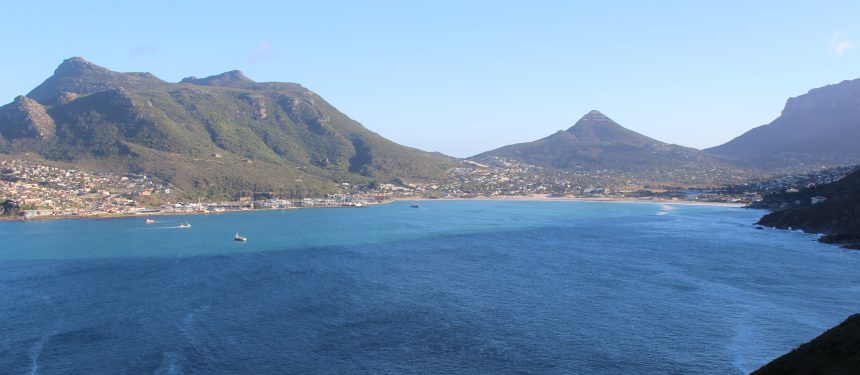South Africa’s ELT industry experienced a 19% growth in student numbers last year, showing signs of recovery from a visa policy impasse that suddenly plugged the healthy flow of students into the country in 2015.
News and business analysis for Professionals in International Education
Have some pie!
South Africa ELT bounces back, but visa hurdles remain
 Cape Town. Student numbers increased by 19% in 2016, according to the recent statistics. Photo:
The PIE News
Cape Town. Student numbers increased by 19% in 2016, according to the recent statistics. Photo:
The PIE News However, problems still remain in implementing a solution reached with the government in November last year.
The number of students enrolled at Education South Africa schools rose to 8,700 last year, according to the organisation’s latest statistics, up from 7,330. And student weeks rose by 20%, to 54,388.
“The problem then comes in the implementation of the solution at hand, because a lot of embassies aren’t even aware of what’s going on”
Last autumn, EduSA resorted to legal action and took the government to court over its visa policy, after a regulations change in 2014 caused confusion over whether students could obtain visas for EFL study.
The case against the government ended with an agreement that EduSA members will now undergo an accreditation process to meet the requirements defining a ‘learning institute’ in order to issue study visas.
The growth in numbers demonstrates that schools have adapted to the new visa situation, said Torrique Borres, vice-chair and marketing at EduSA. However, there are still growing pains when it comes to actually implementing the solution.
“We’ve got a solution in place that has been negotiated with the relevant government departments that we may get study visas,” he told The PIE News.
“And that’s quite clear. The problem then comes in the implementation of the solution at hand, because a lot of embassies aren’t even aware of what’s going on.”
The association is engaging with embassies to show them what is in place in terms of visa policies for this sector, and there is hope that “they are accommodating and understanding, and try to fast track the process”, said Borges.
So far, this has been relatively successful, with a number of countries including Brazil and Saudi Arabia issuing study visas again.
However, Borges emphasised that this solution is a “temporary measure”, as the process of accrediting the schools and their curricula is still underway.
“The accreditation has been the crux of our issues the whole time,” he said. “That problem has not fallen away yet, so this is something that we have to deal with parallel to the interim solution which is in place.”
Student numbers at member schools plummeted by 37% between 2014 and 2015 as a result of the visa policy. Two member schools were forced to close their doors in the last six months as a result – SACEL in Cape Town, and the English teaching arm of the Knowledge Workshop, which has remained open for its teacher training division.
“They were trying to hang on as long as possible following all the visa troubles, but unfortunately that wasn’t possible,” said Borges.
The statistics however, paint a picture that the market is on the upward swing once again.
Africa was the only source region which showed a decline in student numbers in 2016, according to the statistics, down from 2,193 to 1,794.
Shaun Fitzhenry, director at Bay Language Institute in Port Elizabeth, told The PIE News the decline in African student numbers was partly as a result of visa restrictions, and “declining growth in some key African markets, such as Angola”.
“Real and perceived xenophobia has also had a dramatic impact on the African market,” he added.
Europe was impacted the least throughout the visa challenge, according to Johannes Kraus, EduSA’s chairperson.
The region experienced a 21% growth in numbers last year, after institutions targeted marketing efforts towards these countries.
“As more and more embassies come on board, it’s easier to be positive which is good”
“Most students receive a 90-day visitor’s visa on arrival in South Africa and extending the visa to 180 days is relatively easy and painless,” said Kraus.
There was also significant growth reported in students aged 16-25, with numbers from all markets increasing 27% to 2,485, among 16-20 year olds, and 30% to 2,759 among 21-25 year olds.
“I think cost has had an impact,” said Fitzhenry. “Because of the favourable exchange rates, South Africa has effectively become a cheaper destination, and therefore more attractive to this age cohort.
“This, together with our natural beauty, the abundance of adventure activities and excellent tourism infrastructure combine to make South Africa attractive to these people.”
Numbers are expected to continue to grow throughout the rest of the year, providers said.
“I think people are fairly positive,” said Borges, adding that “the numbers are better and as more and more embassies come on board, it’s easier to be positive which is good.”
Still looking? Find by category:


